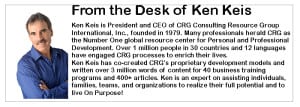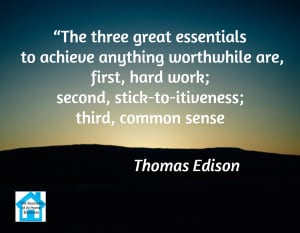Be A Winner
Do You Have the Mindset of a Winner?
Winner: One who wins; one who is successful, especially through praiseworthy ability and hard work; a victor, especially in games and life
Are you a winner?
The answer is Yes—but only if you want to be!
- Being a winner is a choice, not a condition of your circumstances.
In today’s turbulent times, many want to blame everyone else for their condition or situation. Admittedly, there is a lot of blame to go around in terms of corporate misconduct—but what does that mean for each of us?
At every moment, we can choose to let our circumstances shape our lives or we can shape our circumstances.
Winners don’t get hung up on what could have been. We are not into time travel yet. Worrying about the past is counterproductive.
Yes, others’ conduct has traumatized the global economic foundation. Regardless, we all need to own our space. Participating in a protest is not going to get you work or a career.
- Winners take responsibility for the life they created.
I know it might difficult to assume responsibility for our condition but that is essential to a winner’s mindset. Last month during a documentary on the US financial/real estate meltdown, a reporter was interviewing owners and lenders. Not one person took any responsibility for our current mess.
One women had borrowed (been given is a better description) over $1.8 million in loans for multiple properties and she was in default. Her monthly income was $1500 per month. When she was asked by the reporter how she had contributed to the rocky financial situation in the US, she denied she had played any part in it. It was all the bank’s fault for lending her the money.
The loans officer at the bank blamed the mandate set by the executives to increase sales, no matter what! so he maintained his hands were clean!
The reality is, both are at fault.
To truly be winners, they both must take responsibility for the situation.
Winners know their purpose.
After I had conducted a recent seminar, an individual asked me what if he did not have a purpose and therefore did not know what he wanted? My response was that everyone has a purpose or calling. You just need to find out what it is.
Our life leaves clues. We must pay attention to the evidence.
When you are a true winner, you are living a fully engaged life. In our experience at CRG, that is achievable only when you are living your purpose.
Winners embrace that truth and seek to align their choices and their life accordingly.
Winners focus on what they want, not what they don’t want.
Dreams and hope are two of the most powerful concepts winners can embrace. The law of attraction is a real, working, nonnegotiable principle.
- You can’t have wellness and health if you are always worried about sickness and injury.
- You won’t have wealth if you are always worried about being broke.
- You won’t find a job or a career if you keep thinking nobody will hire you.
Document exactly what you want! It is very difficult to attract unknown results. In fact, ambiguity will lead to confusion, not clarity.
Included in this step is that your language—the words coming out of your mouth—MUST reflect the outcome you desire . . . not the current situation you are in. What you put your attention on will increase. There simply is no way avoid that principle.
If you are broke, you won’t improve the situation by saying you have no money. That will just keep you in poverty.
If you are ill, talking about how sick you are will not improve your wellness. Norman Cousins proved that in his book, The Anatomy of an Illness.
If you say you can’t find a job and that comes to pass, don’t be surprised. Focus—think and speak—only about what you want!
Persistence is mandatory.
Winners realize setbacks are part of the winning process.
Never giving up is a requirement for winning. Last week at my son’s ball game, one of his team members missed catching an easy flyball. Then, instead of chasing after the ball, he quit trying. That resulted in two additional runs for the other team.
When Colonel Sanders of KFC fame first approached the marketplace with his secret recipe, he was rejected by over 60 restaurants. He resorted to sleeping in his car until he found success.
Winners keep going—no matter what.
Winners surround themselves with other winners.
As noted in many of our previous ezines (like last month, about toxic people), you take on the characteristics and values of the company and friends you keep. It’s difficult if not impossible to succeed or become a winner if you are hanging around with losers.
Whether you like it or not, the language and conduct of the people around you influence you. Choose to have supportive and successful mentors and friends.
You must take the position that it does not matter what others say.
You control your own destiny!
The reality is that many individuals don’t take responsibility for their own condition and they won’t be supportive of your goals and dreams, either. As a winner, don’t share your dreams with those types of people; they will try to talk you out of your future!
Choose winners for friends.
Winners own their space and take proactive action steps.
Here are a few for you to consider.
To help you on your journey of winning, I recommend several CRG resources. My 88-page workbook, My Source EXPERIENCE Journal™, will take you on a personal discovery of enlightenment and affirmation to increase your winning ways.
As building blocks, I also suggest the Values Preference Indicator,Self-Worth Inventory, Stress Indicator and Health Planner, and the Personal Style Indicator.
Follow these Action Steps and complete the recommended resources, to help you increase your confidence and your winning ways.
Action Steps
Do You Have the Mindset of a Winner?
- Being a winner is a choice. It has nothing to do with your circumstances. Are you choosing this very moment to be a winner? Your answer should be Yes!
- Take responsibility for your life and the condition of it. Have you done that? Would people say you take responsibility for your life and the condition it’s in? Are you happy with your answer to that question?
- Are you clear about your life purpose and calling? If not, get on with this step. Knowing who you are is critical to the winner’s mindset.
- Once you know who you are, do you know where you are going? Are your dreams and goals clear?
- Focus on what you want—not what you don’t want. You manifest what you think and talk about. It is nearly impossible to be a winner while worrying about all the things that can go wrong.
- Do people call you persistent? Winners never give up on their dreams or calling, no matter what. Often, the difference between losers and winners is the character trait of persistence.
- Do you surround yourself with other winners? You must avoid toxic people, as we discussed in last month’s ezine.
- Every person has a purpose.
- Benchmark your current condition with assessments.
- To identify your natural preferences and strengths, complete the Personal Style Indicator (PSI).
- Yes, you are a winner. And, with a winner’s mindset, you will feel fulfilled and able to become fully engaged in your life . . . and contribute much to many!
Until next time, keep Living On Purpose!







